#ernest normand
Text

Esther Denouncing Haman, Ernest Normand, 1888
#art#art history#Ernest Normand#religious art#Biblical art#Esther#Book of Esther#Old Testament#Hebrew Bible#genre painting#genre art#Orientalism#Orientalist art#Academicism#Academic art#British art#English art#19th century art#Victorian period#Victorian art#oil on canvas
325 notes
·
View notes
Text
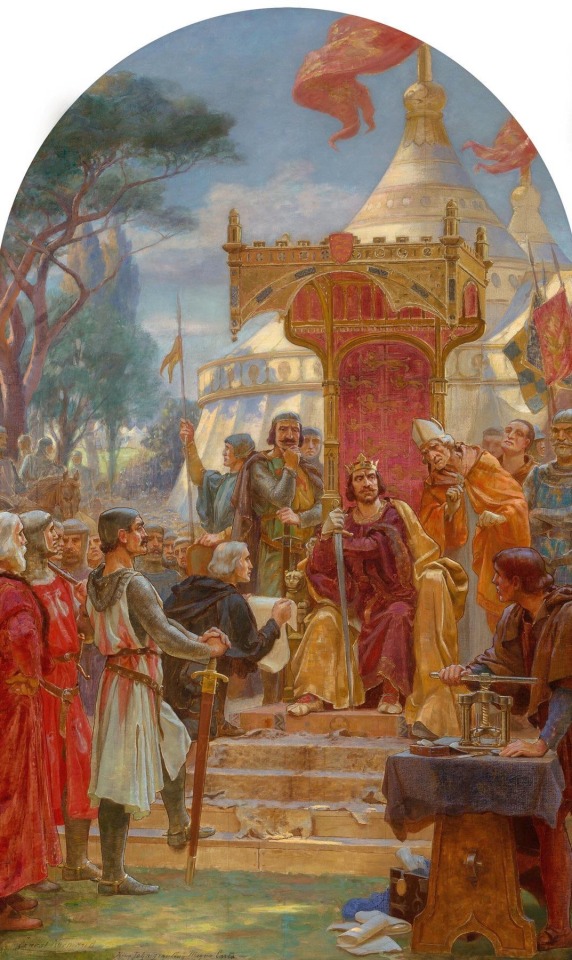
King John granting the Magna Carta at Runnymede, on the bank of the River Thames near Windsor, England, 15 June 1215
by Ernest Normand
#king john#magna carta#art#ernest normand#england#runnymede#windsor#river thames#medieval#middle ages#history#barons#monarch#king#john#english#norman#earl of pembroke#robert fitzwalter#archbishop#stephen langton#cassell's history of england#knights#europe#european#royal#royalty#monarchy#liberty#tent
239 notes
·
View notes
Text

Ernest Normand - Pygmalion and Galatea, 1886.
18 notes
·
View notes
Photo

Ernest Normand - The White Slave, 1894, Unknown location.
#art#arte#classic#classical#classical art#classical paintings#painting#paint#painter#English art#english painter#English artist#ernest normand#the white slave#1894#1890s#1800 painting#1800s painting#orientalism#orientalist art#victorian art#victorian artist
95 notes
·
View notes
Photo

Ernest Normand (British painter) 1859 - 1923
'The Dead Steer'd by the Dumb Went Upward With the Flood...' , 1904
46 notes
·
View notes
Photo

Ernest Normand (British, 1857-1923)
Evil Sought
24 notes
·
View notes
Text

1 note
·
View note
Photo

ca. 1919
3 notes
·
View notes
Photo
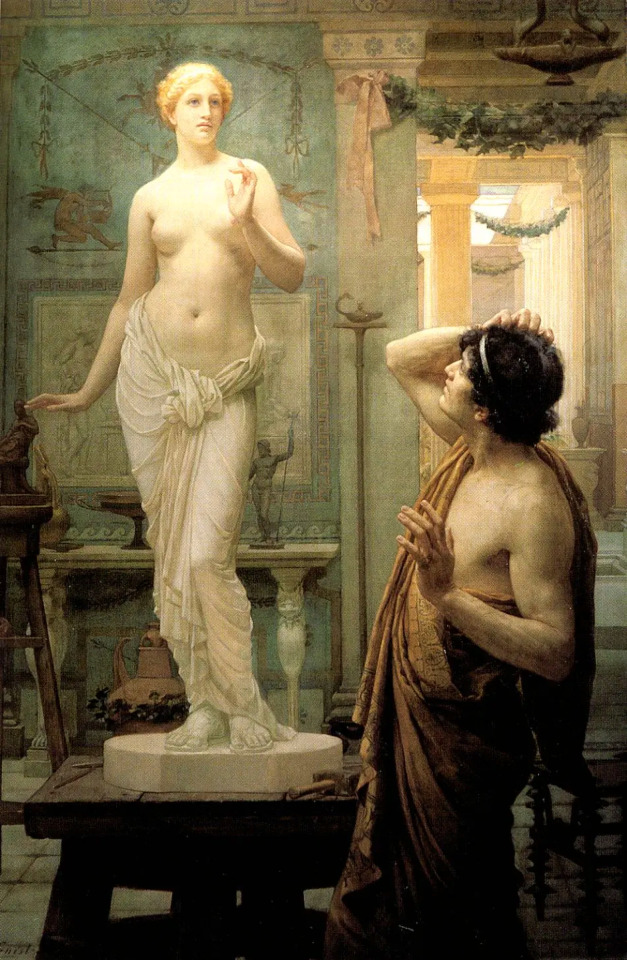
Pygmalion and Galatea. 1886. Ernest Normand British (1857–1923) oil/canvas. http://hadrian6.tumblr.com
401 notes
·
View notes
Text




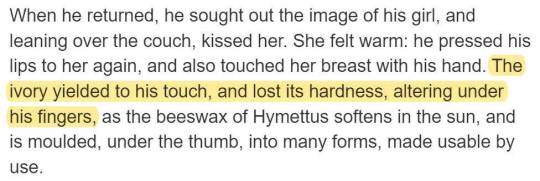
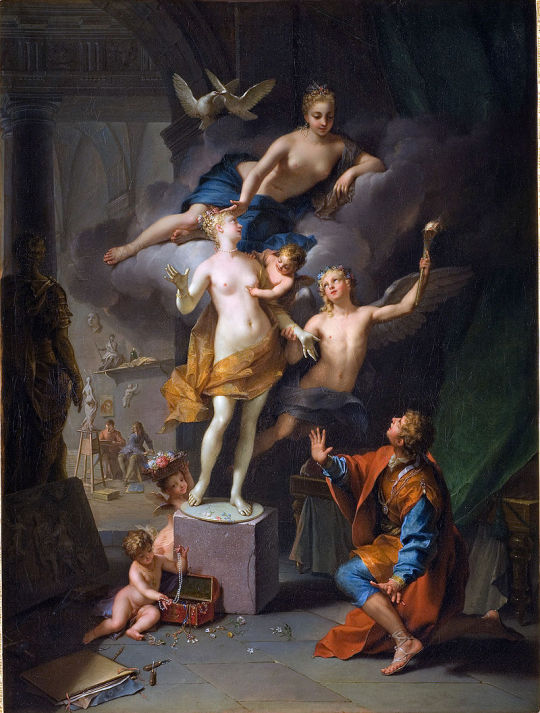
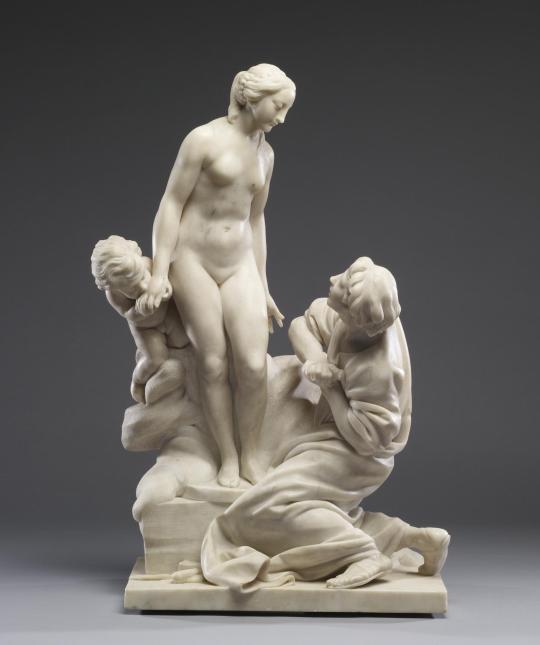

Galatea and Pygmalion—
Gérôme, Jean-Léon "Pygmalion and Galatea" // Normand, Ernest "Pygmalion and Galatea" // Ovid Metamorphoses // Regnault, Jean-Baptiste "Pygmalion" // Raoux, Jean "Pygmalion Adoring His Statue" // Falconet, Etienne-Maurice "Pygmalion and Galatea" // Shaw, George Bernard Pygmalion
#i saw the first painting at the MET and it is one of my favorites#i went down a rabbit hole finding other artworks about pygmalion and galatea and then wanted to find the literature to tie it together#the art is quite beautiful and honestly i think the story is so thought provoking#i named galatea first in the title bc she deserves it#i also wanted to give her the last word#i hope you enjoy#web weaving#web weave#academia#light academia#dark academia#pygmalion#galatea and pymalion#my fair lady#art#classics#ovid#ovids metamorphoses#metamorphosis#painting#quotes#poetry#parallels#sculpture#mine
139 notes
·
View notes
Text

Pygmalion and Galatea – Ernest Normand // (O)rdinary – Avenged Sevenfold
for @theold-ultraviolence 🖤
#pygmalion#galatea#pygmalion and galatea#edward burne jones#(o)rdinary#ordinary#(o)rdinary song#(o)rdinary avenged sevenfold#(o)rdinary a7x#life is but a dream#life is but a dream album#life is but a dream avenged sevenfold#life is but a dream a7x#avenged sevenfold#avenged7fold#a7x#art#art history#lyrics#lyric art#request 🥰#irma 🖤🥀
22 notes
·
View notes
Text
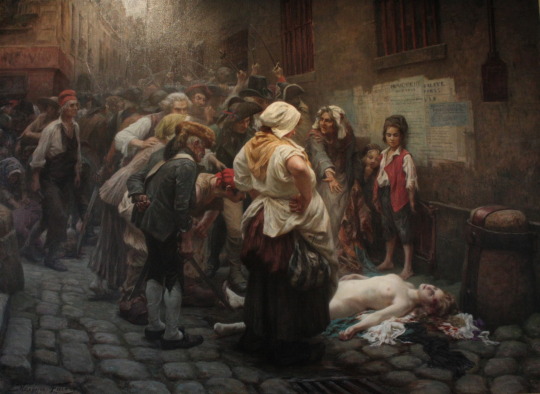

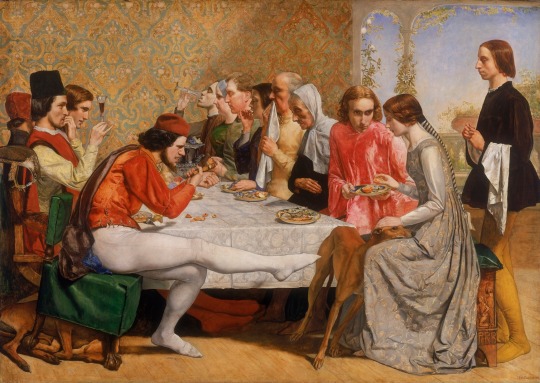




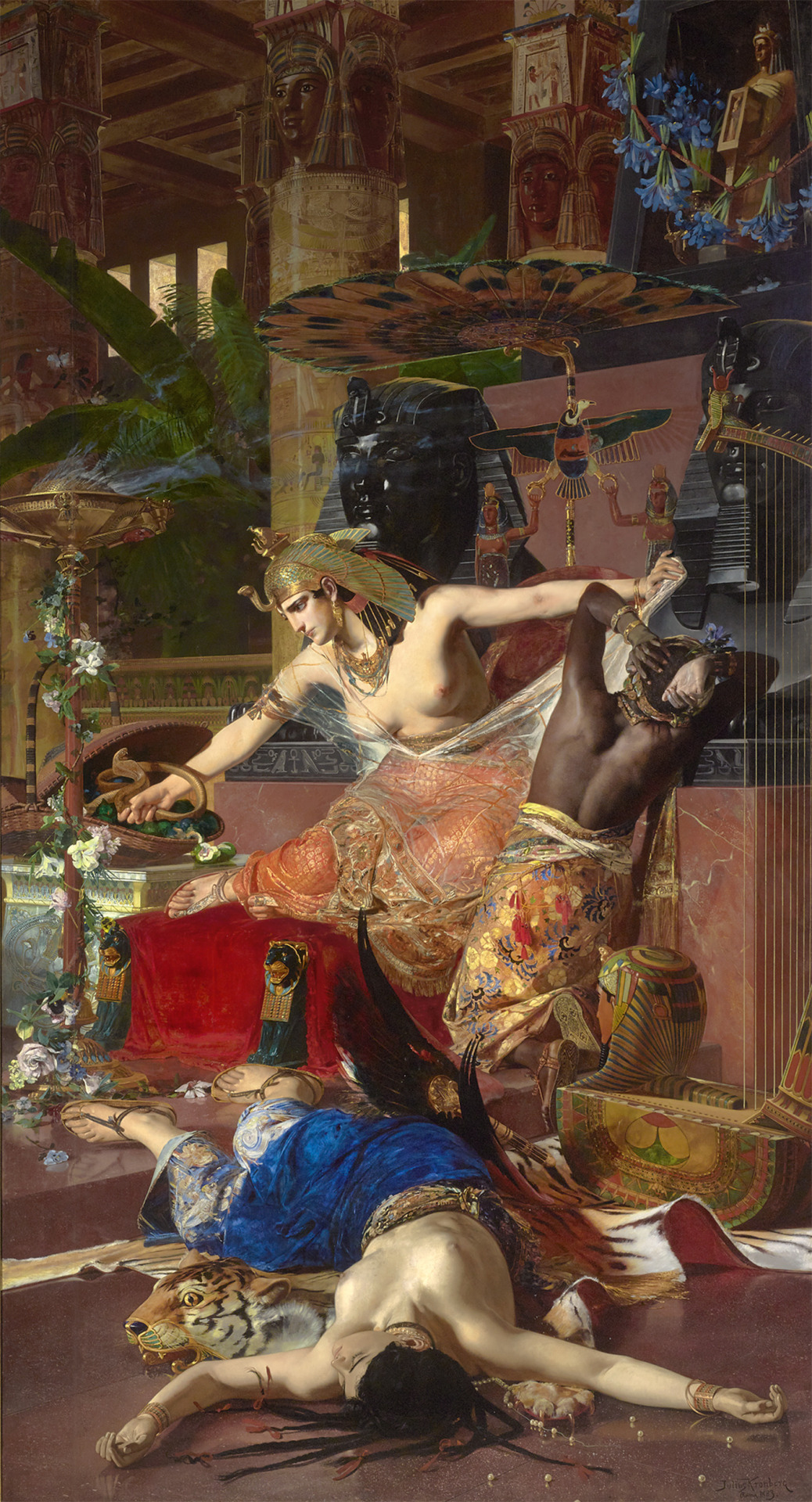
1, Léon Maxime Faivre 1908 2. Václav Brožík 1892 3. John Everett Millais 1849 4. Vittorio Reggianini 1800s 5. Georges de La Tour 1630s 6. Emil Lauffer 1879 7. Ernest Normand 1888 8. julius kronberg 1883
13 notes
·
View notes
Text

Pygmalion and Galatea, 1881 by Ernest Normand.
47 notes
·
View notes
Text

Ernest Normand - Queen Vashti deposed, 1890.
5 notes
·
View notes
Text

La esclava blanca
Ernest Normand (1857-1923)
Fue un pintor orientalista inglés.
0 notes
Text

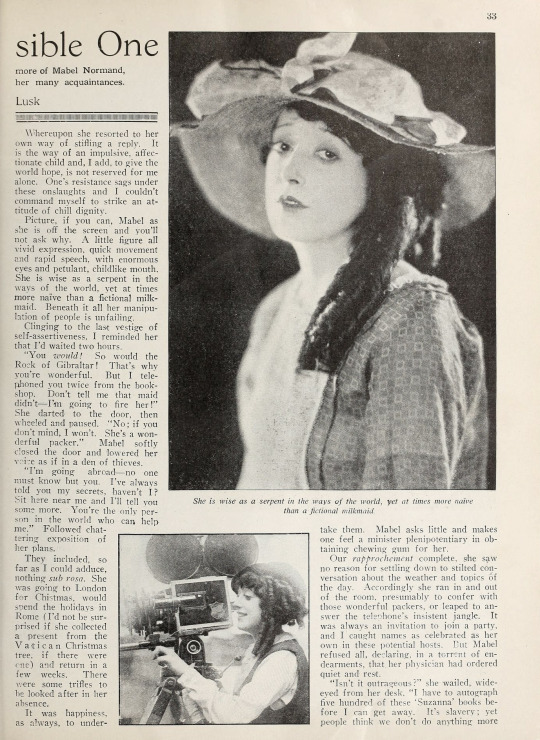
from Picture-Play Magazine, October 1923
The Irrepressible One
Fans are always clamoring to see more of Mabel Normand, and in that they are quite like her many acquaintances.
By Norbert Lusk
Full Transcription Below
Photo caption: She is a little figure, all vivid expression, with enormous eyes and petulant, childlike mouth.
MISS NORMAND, one hand grasping a tube of tooth paste, the other holding with a bibliophile’s tenderness a volume of Ernest Dowson, romped into the room.
Tor two hours I had waited. My patience was that of a senescent courtier used to the etiquette of dying monarchies.
Not to interview her. Not as a stranger come to beg a photograph, or a year's tuition in a college of chiropractic, or even to beseech aid for a crippled kiddie’s operation.
These benefices would, my experience told me, have been all too easily won from Mabel. The prospect of such picayune gold digging would have found me not at all trepidant.
I had come on a far, far more delicate mission—one that held me rigidly apprehensive in the plush and prisms of the hotel drawing-room, though not too unstrung to inventory the jumble of Mabel’s belongings scattered, piled and flung here and there.
How like her they all were, I mused, but not too indulgently. Deciding, you understand, to be reserved and not let her know I'd paid attention to her gewgaws. They ranged from seven grotesque dolls, limply perched on mantel and chairs, to a capsized basket of faded flowers, and a leaning tower of cigarettes in boxes, with other oddments between.
For I was there as a once-devoted friend willing, but not too eager, to consummate a reconciliation, if I may use a toplofty phrase. and resolved to be dignified at all costs and not let old-time fondness be welded anew into fettered slavery.
It was to cancel an estrangement brought about by an unanswered letter, or, something equally heartbreaking that Mabel had done.
Frankly, I don't quite remember what it was, now, though before Miss Normand scampered down the hall my grievances were precisely defined, like the perforations on a music roll, and ready to be ground out, a complete opus, at concert pitch.
Mabel is like that—she makes her wounded victim forget his wrongs in a moment and buckle on the armor of a crusader to avenge her own. She is dreadfully devastating to dignity, to judicial balance, to one’s amour propre.
That neglected letter, or whatever it was, had made me sorry for myself and skeptical of the friendly vows of all queens of the screen. I had, indeed, renounced the false sisterhood and consigned them to celluloid. When, as recorded, Mabel bounced in.
Now for the Normand witchery, sorcery, or what not. If this story is to get anywhere at all, something that passes for explanation must be submitted. The hard part of it lies in translating it by means of the printed word, lacking, in turn, the wizardry, alchemy or what not of a Rossetti, a Thomas Hardy, or a James Joyce. Mabel is deserving, honestly, of an abler etcher than I.
“I love your coat—it looks like an Airedale!’ she cried outside, before I saw her, as a means of breaking the ice after three years.
“Ernest Dowson is my favorite poet. I love him. If he weren't dead I’d make him marry me.” Mabel whirled in delivering herself of this and introduced me to the bell boy, who stood behind her, laden with books.
“This is my darling old friend who knows all my faults but loves me just the same. He’s going to be Ritzy about this when you go, because he’s got himself up in soup and fish, trying to pass for an ambassador! But I don’t care, now that he’s forgiven me—do I, Bunker Bean?”
Whereupon she resorted to her own way of stifling a reply. It is the way of an impulsive, affectionate child and, I add, to give the world hope, is not reserved for me alone. One's resistance sags under these onslaughts and I couldn’t command myself to strike an attitude of chill dignity.
Picture, if you can, Mabel as she is off the screen and you'll not ask why. A little figure all vivid expression, quick movement and rapid speech. with enormous eyes and petulant, childlike mouth. She is wise as a serpent in the ways of the world, yet at times more naive than a fictional milkmaid. Beneath it all her manipulation of people is unfailing.
Clinging to the last vestige of self-assertiveness, I reminded her that I’d waited two hours.
“You would! So would the Rock of Gibraltar! That’s why you're wonderful. But I telephoned you twice from the bookshop. Don’t tell me that maid didn’t—I’m going to fire her!” she darted to the door, then wheeled and paused. “No; if you don't mind, I won’t. She’s a wonderful packer.” Mabel softly closed the door and lowered her voice as if in a den of thieves.
“I’m going abroad—no one must know but you. I've always told you my secrets, haven’t I? Sit here near me and I'll tell you some more. You're the only person in the world who can help me.” Followed chattering exposition other plans.
They included, so far as I could adduce, nothing sub rosa. She was going to London for Chistmas, would spend the holidays in Rome (I'd not be surprised if she collected a present from the Vatican Christmas tree, if there were one) and return in a few weeks. There were some trifles to be looked after in her absence.
It was happiness, as always, to undertake them. Mabel asks little and makes one feel a minister plenipotentiary in obtaining chewing gum for her.
Our rapprochement complete, she saw no reason for settling down to stilted conversation about the weather and topics of the day. Accordingly she ran in and out of the room, presumably to confer with those wonderful packers. or leaped to answer the telephone’s insistent jangle. It was always an invitation to join a party, and I caught names as celebrated as her own in these potential hosts. But Mabel refused all, declaring, in a torrent of endearments, that her physician had ordered quiet and rest.
“Isn't it outrageous?” she wailed, wide-eyed from her desk. “I have to autograph five hundred of these ‘Suzanna’ books before I can get away. It’s slavery; yet people think we don’t do anything more
Photo caption: She is wise as a serpent in the ways of the world, yet at times more naive than a fictional milkmaid
strenuous than change our shoe trees. I’ve got writer’s cramp, as it is, and housemaid’s knee too. Tell me what to write on the flyleaf for my French teacher. I've been studying three years and don’t know a thing, but he’s a darling old peach.”
She munched her pen. Already she was inked to the wrists. Needless to relate the ready star needed no prompting.
“Don't you dare like this book more than you do me!” she scribbled, “l’otre gamine terrible—Mabel.”
Gamine! That’s the word. Mabel herself described a phase of herself, her present phase.
Luxurious, lavish, independent of any individual's favor, she is a gamine de luxe—a sort of Kiki, minus Lenore Ulric, because, despite dissimilar circumstances, Mabel’s heart is that of the child-woman of André Picard’s play. Gaining her own ends by the sheer vigor of her attack, never accepting defeat. appraising people and situations to a nicety, and over all flooding an excess of capricious high spirits.
Mabel is inimitable, undeniable, irresistible. You may put this down, if you choose, as arrant bias on the part of her toiling historian. But confront him, if you can, with the person who has withstood Mabel. Vainly he has sought this Hippolytus among studio workers—people generally without illusion—and while there are feminine stars of the dramatic persuasion who wouldn't exactly expand while Mabel watched their emotional scenes in the making, it is because her sense of burlesque would conflict with their lack of it.
Yet. while she indulges her gamine mood, there still are other moods. When finally she permitted the packing to be carried on without interference and had inscribed fly leaves galore, autographed pictures, written notes, despatched telegrams, denied herself to callers, plied me with food, “Suzanna” souvenirs and instructions—and had driven home her points with some comic imitations of people we all know—she talked uninterruptedly. Probably as a means of warding off fatigue.
“WHY is it, do you suppose, I’m not happy? People think I am. I babble because they expect just that. But. cross my heart and hope to die, I'm not Pollyanna by a long shot. There's something missing. Sometimes I think it’s because I know people too well—see through them too easily—and it makes me want to hide myself away from it all. You know I really love to be alone where I can think things over but—you answer the telephone, darling—say that Miss Normand has gone over to Staten Island to see her mother.” Fortunately this fib swept the current of Mabel’s introspection into happier channels—happier, without doubt, for her visitor, who had the sudden qualms of one who might be keeping Mabel from thinking things over.
“You remember I always used to be writing things in my book? If you promise not to make fun of me, or take down anything, I'll read to you. I’m really self conscious about my poems. I couldn’t bear to have people laugh at a comedienne’s attempt to be serious.”
And so, twisted into gnomelike angles, on the sofa, Mabel unlocked her book and read. She won’t mind mention of this because, in keeping my word not to quote. I have only recounted a fact which her fans should know.
Her verses are simple, unaffected, concrete. Each mirrors an impression. There are clear images, unclouded by wasted words, in them all. The sincerity of her intention disarms the critic (if I may masquerade as one so late in the story), and stirs and touches. Which is precisely what Mabel wished to do when she essayed her first author’s reading under a rose lampshade.
“Why in the world don’t you publish these? You’d have no trouble arranging it, and think what a surprise people would get.’
“Not for any money—at least not now. They’d only be bought out of curiosity and some one surely would laugh. I couldn’t bear to be laughed at in that way. When one understands life, or tries to, thoughts that touch very deeply should be kept mostly to one’s self... Oh, but I'd love to do an autobiography, and tell the truth, mind you, the whole truth! That's all that would excuse it.”
I predict that she will, some day, for unless all symtoms fail, what Mabel aches for is literary expression.
Certainly few busy people read more than she does or respond more readily when there is opportunity to discuss books. Of the fifty or so volumes awaiting the clutches of the packers, there was nothing obvious; no garishly jacketed best seller, but poetry, biography, criticism, history, all out of the ordinary.
In reading, however, as in her conduct. it would seem milady has her moods. She avowed affection for Ethel M. Dell—at least for one of her stories which Mabel expects to do in pictures—yet holds Leonard Merrick, economist of emotion and narration, in esteem.
“No, no; not that. Don't begin with ‘Conrad in Quest of His Youth’—that’s not a fair test of Merrick’s power,” she advised a caller who wished to become acquainted with the novelist. “Start with ‘The Man Who Understood Women.’ The rest will take care of themselves.”
She dispensed this counsel with a quiet zest that gave me a flash of the pedagogue, if you'll credit that. In line with this she assured me she was a born old maid, and expected to die one, because she spends much time happily cataloguing and rearranging her belongings. Servants notwithstanding, Mabel says she knows exactly where to find the black-lace stockings that have been mended once, and woe betide the slave that mixes her handkerchiefs.
How, I asked myself, did the inflexible Britons receive this quaint, unconventional ex-Biograph girl? She had returned, not long since, from her first invasion of London and was now to go again, without having revisited Los Angeles. There must have been few lorgnons raised by the duchesses for Mabel to cartwheel into the midst of their unwedded young sons once more. So I asked her.
“In England people do the loveliest things for you for the love of doing them. You know what I mean? They don’t calculate their kindness. It’s an instinct, not a gesture, and it’s gracefully casual. Gosh! I adore the English for their civilization, their traditions.”
This enthusiastic blanketing she followed with details spotlighting the hospitality of lords and ladies in country houses and at hunt breakfasts. Of solitary
---
THROUGH FRIENDLY EYES
Now and then interviewers and acquaintances of Mabel Normand have written their impressions of her—many of them vivid, some of them appealing, all of them interesting. Normand is one of those rare individuals who never fails to make a deep impression on the people she meets. It is only from a person who has known her well for a number of years, however, that you can get an adequate word picture of this unusual girl. Therefore, PICTURE-PLAY is proud to present this story by Norbert Lusk—first of all because he is a clever, facile writer—but particularly because he has long known and admired her.
---
walks over moors, gathering heather—and, with no less happiness, of a police inspector who had won her heart by escorting her through Limehouse.
“You knew dear George Loane Tucker, didn’t you? Well, Sir Hall Caine wrote me a darling note—no; sweet was the word for it (I mean quaint), telling me that Mr. Tucker, when he was alive, used to write him nice things about me and asking if he could come to see me. He came and turned out to be the gentlest, darlingest pet there ever was. We understood each other—zip! like that! and later I went to his house for tea.
“I liked Barrie too, Wasn't it a shame? I mean I was bathing when he called at the Ritz and kept him waiting too long” (oh, Mabel, how like you!) “for when I came out he had gone, leaving a funny little note. It said that he had fixed the fire in the grate and hoped it would warm me. Of course I tried to make up for this later. Shaw was awfully kind too—very quizzical and clever."
She had, however, no tale of him to equal the other conquests, which gave me an opening to ask if it were true she had broken an engagement to meet Princess Mary.
“Of course not! My friends ought to know me well enough to be sure I wouldn't do that. It was to have been at a charity bazaar or something. At the last moment the thing was called off. Some bigwig engineering it was sick. Then some one thought it would be funny to say Mabel Normand had been rude. That’s how things start. Just because I’m a little—well, you know, different—people believe anything weird about me.
“I wish to heaven some philanthropist would take the time to write about me as I am. Something quite simple, natural. Not making me out a highbrow, or a stately Vere de Vere, or as a girl with no taste at all. Just as I really am—just me. Then the public wouldn't swallow nonsense when it’s printed by those who don't care because they don't know any better. . . It must be great to be a wharf rat.”
Mabel next returned from Europe in high spirits on a slow steamer, under the impress that she had booked passage on an express.
Reporters, boarding the vessel at quarantine, still surrounded her at the pier because, I surmised, she was offering entertainment—or news.
Next morning’s papers rumored her supposed marriage to an anonymous Londoner. Mabel was in tearful indignation over this wrong and, as always, spurred her sympathizers to avenge the canard. But first I probed for clews.
“I never said a thing,” she averred. “A lady on the steamer was reading my palms, saw this diamond guard and kidded me about having married secretly. I kidded her back. Who wouldn't have? Then it spread. Things always spread. I'm going to take the veil.”
She was reminded of what she previously complained of in newspaper misrepresentation and advised that she should have flatly contradicted the sociable palmist.
“Oh, you want me to be dignified. Dignity my eye! I can’t be upstage and I can't be mean when people are nice. But I’ll never even be civil to a newspaper man again.”
On the morrow this sprightly queen of contradiction was hostess to a group of news gatherers, purposely to convince them of the error of their ways. How she did it you perhaps know by now. At any rate the next edition of their journals gave space to Mabel's denial.
This, then, is the Mabel Normand adjudged the leading feminine comedian of the films. These glimpses of her away from the studios, chosen because they are typical rather than exceptional, reflect. I hope, the vigor and verve and whimsicality of her acting. It is doubtful, however, if they give an idea of her professional authority. sagacity. When she is absorbed in work it is absorption indeed. Her long experience—her facile inventiveness — fundamental sense of the comic—are all whipped into dynamic activity when she attacks a picture. Should the result disappoint, Mabel’s reaction is that of utter heartbreak. But she rebounds. Like all urgent souls she never accepts defeat.
“She seems to be working out as one of those very human characters,” she wrote of ‘The Extra Girl.’ “You know what I mean—a girl one looks at and wants to know more about as she passes by, and leaves one with a little ache that one may know her better. She has given me tremendous ambition. If others have failed perhaps it was misjudgment of one kind or another in attempting them. But this picture has had the same effect as. the faith of those who really love me. And so, from the way things look, I think those who care for me will be rather proud of their—Mabel.”
#1920s#1923#mabel normand#picture play#film magazine#fan magazine#classic hollywood#old hollywood#classic movies#silent comedy#silent era#silent cinema#silent film#classic cinema#classic film#classic film stars#my transcription
0 notes